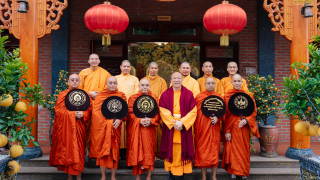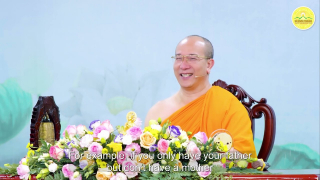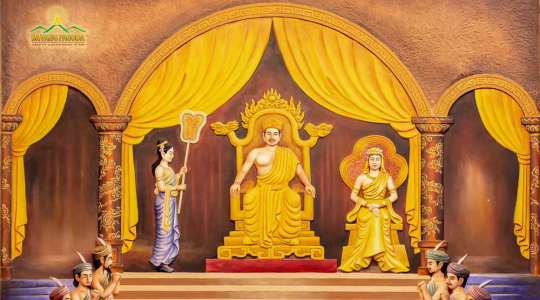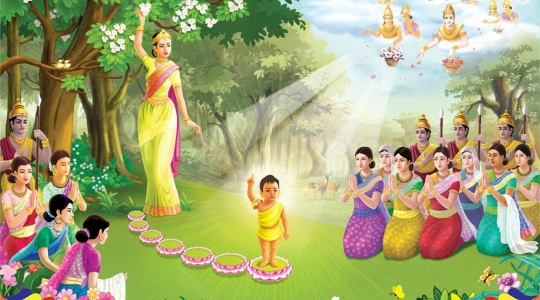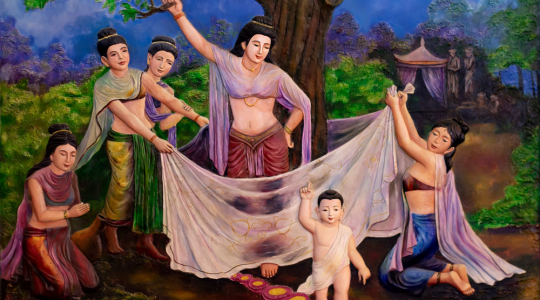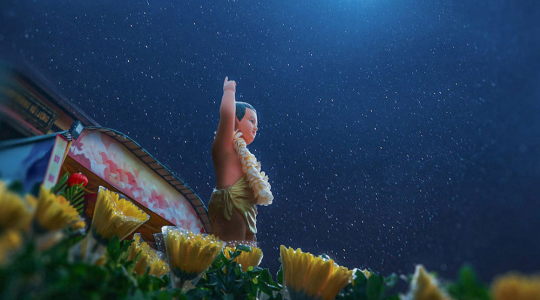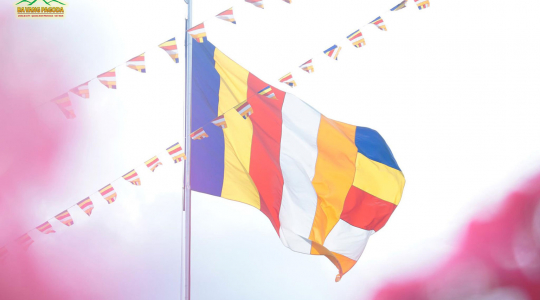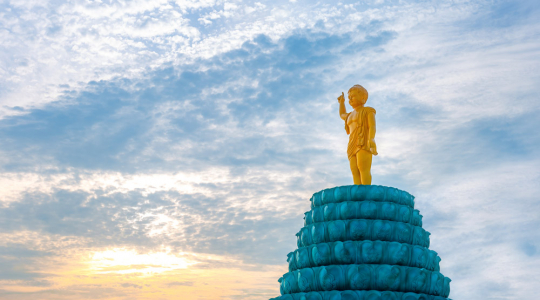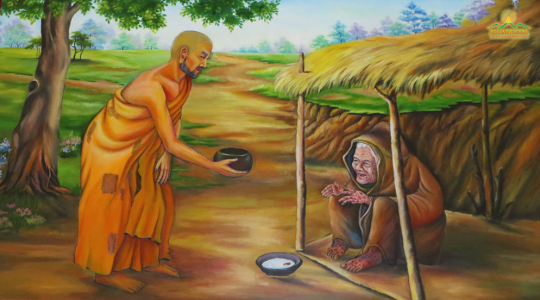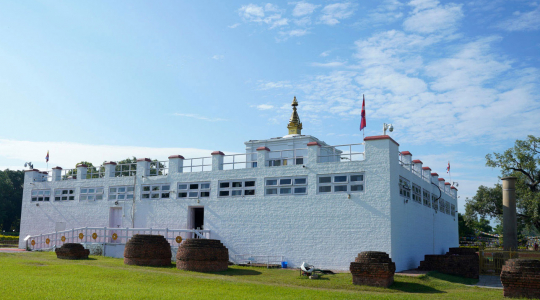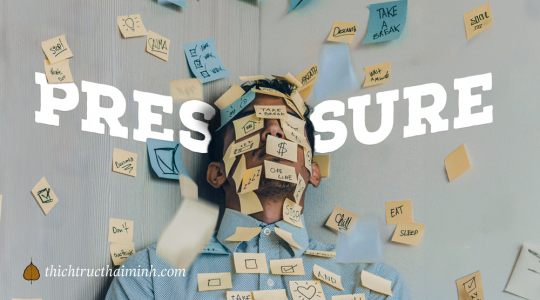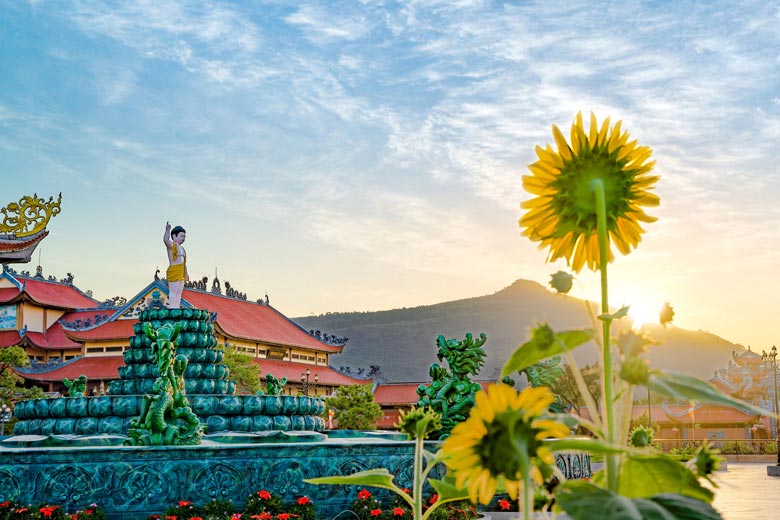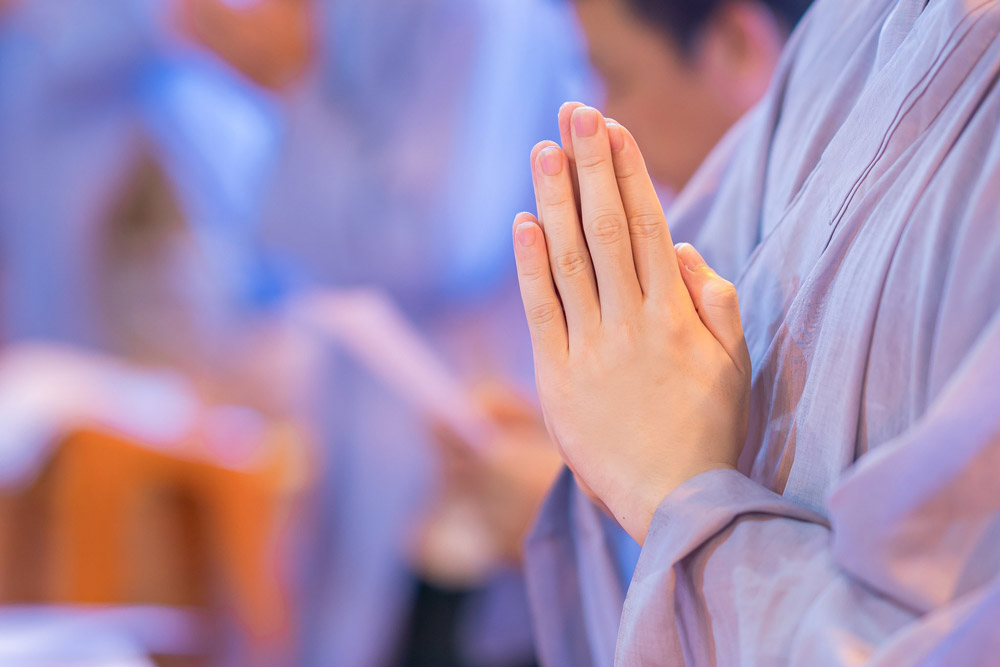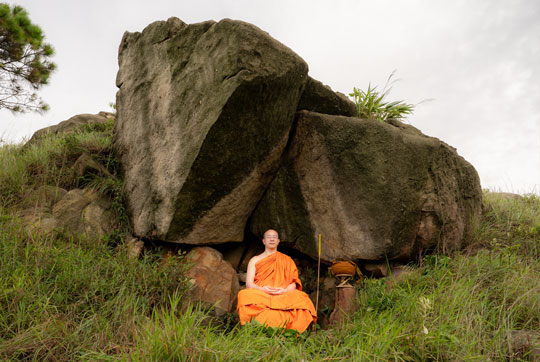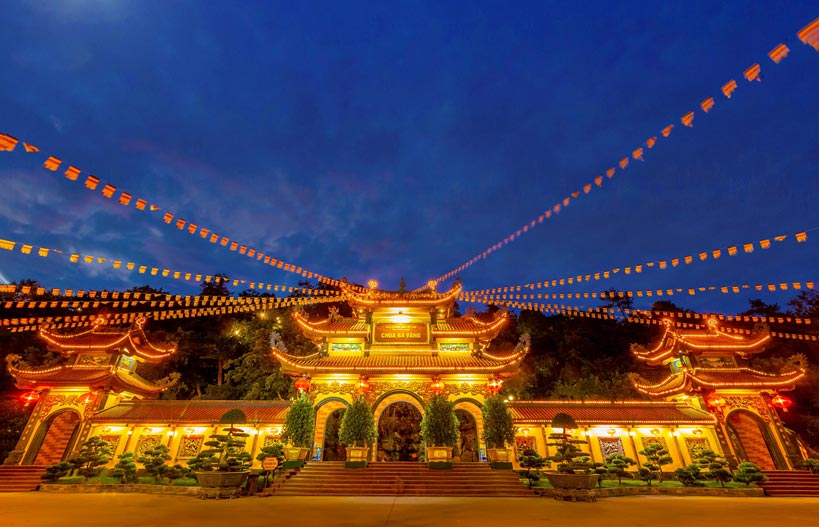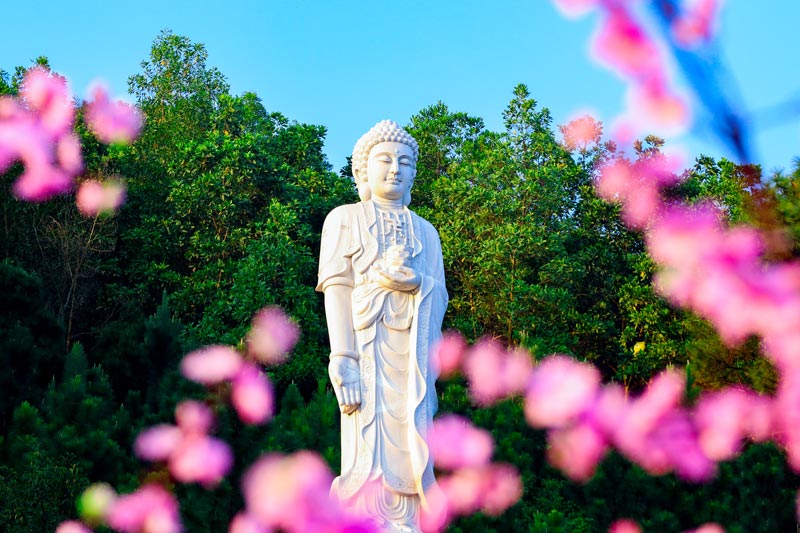Where will we go after death?
Table of contents [Hide]
Life after death is a mystery to us. In one of His Dharma talks, Thay Thich Truc Thai Minh gave Buddhists a closer look into facts about death as well as life after death.
Do souls exist?
This seems to be a big question that not everyone or every religion can answer correctly. In Buddhism, there is no soul. According to the explanation of Thay Thich Truc Thai Minh, the soul is attached to something permanent, something that will not change.
For example, the soul of a buffalo is supposed to have the shape of a buffalo; the soul of a human being would look like a human being. However, it is not true. The spirit after leaving a dead body does not always have the same physical shape as before. It can be something very different.
That is why in Buddhism we would call it spirit rather than soul, because spirits change, just like the impermanence of everything in the world.
What happens after death?
According to Ksitigarbha Bodhisattva Sutra, a person who has great blessings, who has pure karma of body, speech, and thought, or has attained the fruits of enlightenment will be reborn in the realms of Buddhas.
In another case, if a person who did many wholesome deeds, namely the ten wholesome deeds, or observed the Eight Precepts on regular observance days earnestly in his whole life will have blessings to be reborn in the realms of devas (gods) after death.
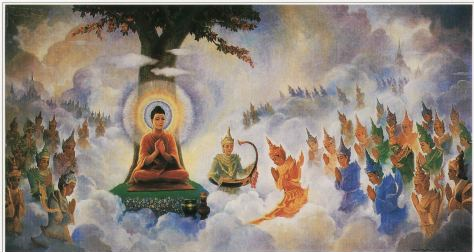
People of blessing will be reborn in realms of devas (gods) right after death
In Ba Vang Pagoda, the practice of the Eight Precepts is organised every month, so that Buddhists from all parts of the country can gather at the Pagoda to receive and observe the Eight Precepts together. This monthly practice taking place at Ba Vang Pagoda comes from the genuine love and compassion of Thay Thich Truc Thai Minh, as Thay wants all of His disciples will have more happiness, not only in this life but also in countless future lives.
If a person commits extremely severe crimes during their life such as murdering their father or mother, which are two of the Five rebellious acts; or murdering Arhats; creating a schism within the Sangha; destroying temples and pagodas; burning Sutras or Buddha statues, they will fall to hell immediately after death.
What is hell like?
Thay Thich Truc Thai Minh explained to His lay Buddhists that hell did not lie under the ground as many people may think. Hell is actually a spiritual realm.
To make it easy to understand, Thay illustrated His point with a television. On the screen of a television every scene can appear, either a beautiful scene of America, or a scene from an aeroplane, or a scene in the ocean, but all of the scenes are just on the TV screen.
So, hell is a realm of spirit. Whoever has extremely evil karma will fall to hell after death. Hell may be right here so that people of hell karma can feel it. That is how we should understand the term realm of spirit. Spirit has a lot of frequencies and stays in different spectra.
We are living in the spectrum of humans so we can see each other, but cannot see beings in hell.
However, there are people who have the karma to stay in the spectrum of hell. They can see and feel hell as if it is right here. Such people have to suffer a lot like being burned and tortured. After death they will fall directly to hell.
Anyone who has a very bad karma will go to hell after they die.
When will someone be reincarnated after death?
In Ksitigarbha Bodhisattva Sutra, it is said that normally after 49 days, spirits will experience rebirth. In these 49 days, spirits will exist in a material state called intermediate existence bodies. Spirits in the shape of intermediate existence bodies look like their antecedent existence bodies, but smaller. For example, a person who is 1,7 m in height would have his intermediate existence body approximately 1,0 m in height. Intermediate existence bodies are very light. They move like electric waves and are able to go through walls.
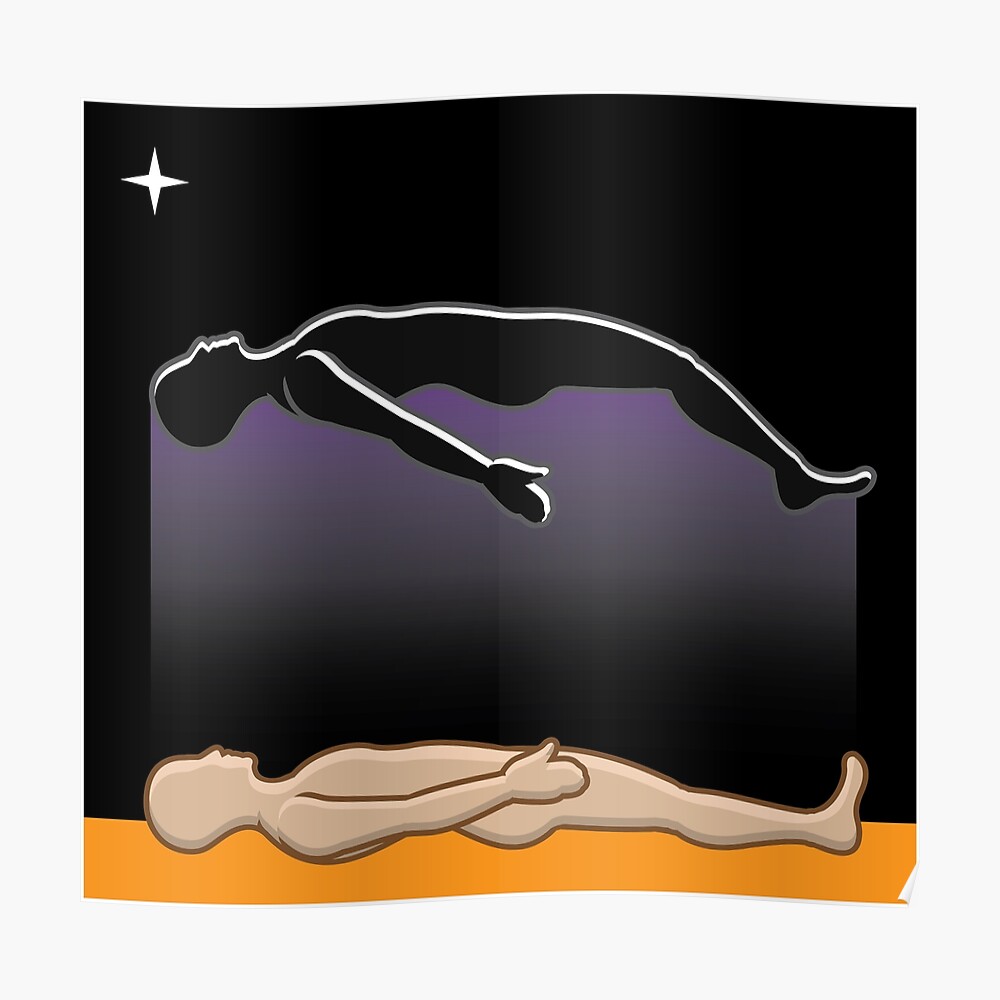
Where will the spirit go after the last breath? (illustrative photo)
Thay Thich Truc Thai Minh told His disciples a real story of His, in which He experienced this phenomenon. When Thay still worked at the University of Economics Vietnam, He once left His body. He could see clearly that He went through a wall, then to the ocean shore. There Thay saw how fishermen were fishing. On the way back, Thay saw one of His friend taking a pee in public at the wall behind a house. After His spirit had come back to the body, Thay told His friend about what He had seen. At that time, the friend of Thay could not deny his embarrassing act.
Based on personal experience, Thay Thich Truc Thai Minh confirmed that the Buddha's teachings say the truth about spirits. Spirits can move through walls just like electric waves or cell phone waves. Everything in Buddhist sutras is the complete truth.
“Why can't other religions declare the same thing? Because they don't experience that. On the other hand, the Buddha knew every spiritual state. He could see everything”, said Thay.
So in 49 days, spirits usually have intermediate existence bodies, which is the intermediate stage between antecedent existence and rebirth existence. After 49 days, intermediate existence bodies will be reborn. That is why there is 49-day ceremony in Buddhism.
How to benefit the dead?
In 49 days after death, if family and relatives do wholesome deeds for the sake of the dead person, namely going to pagodas, reciting Buddhist Sutras, paying homage to the Buddha, making offerings to the Sangha, freeing captured animals, then transfer merit to the deceased, they will be able to receive it. On receiving the merit transferred from their family and relatives, the sins of dead people will be reduced so that they can be reborn into higher realms.
For instance, a dead person who could have been reborn into a realm of animals, such as in the womb of a buffalo or a cow, but with the transferred merit, they can be reborn in the womb of a woman to become a human being in their rebirth, or even be reborn in a realm of devas.
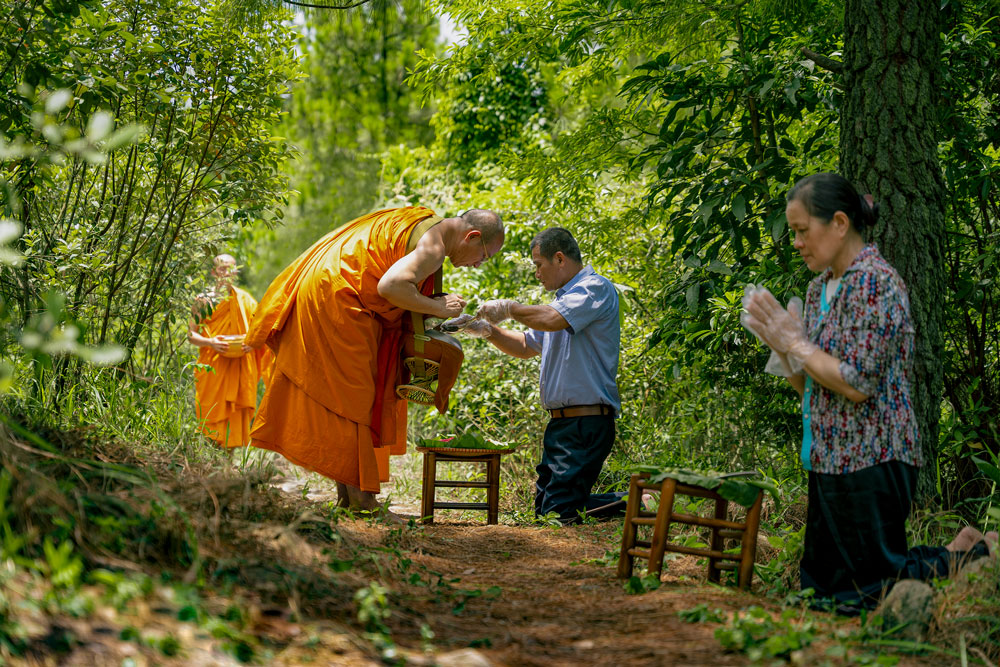
Merit earned by making offerings to the Sangha can be transferred to the deceased
So the 49 days after death are very important. Family and relatives during this time should do good deeds diligently to transfer merit to the recently deceased one, because spirits are very lonely. They have no other ways than waiting for the blessings sent from their relatives.
On the other hand, if family and relatives of the dead one do evil deeds like killing animals to offer them, they will even have more bad karma. They should not have fallen to hell, but because of their family and relatives, sins of the dead one would even pile up higher which makes them fall to hell afterwards.
In conclusion, a person in 49 days after death will be in one of these situations:
First, if they have pure karma of body, speech and thoughts, they will be immediately reborn in the realms of Buddhas.
Second, if they have done a lot of wholesome deeds in their whole life, they can be reborn in realms of devas.
Third, if they have extremely evil karma, they will fall to hell right away.
Except for the above three cases, spirits after death wait from one week, two weeks up to seven weeks in the form of intermediate existence bodies. After that, they have to be reborn in one of the six realms of existence: realm of devas (gods), realm of humans, realm of demi-gods, realm of animals, realm of hungry ghosts or realm of hells.


